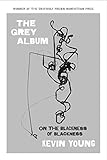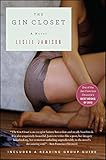 In the opening to Homage to Catalonia, George Orwell describes an Italian militiaman he meets in Barcelona, “a tough-looking youth of twenty-five or six, with reddish-yellow hair and powerful shoulders.” The militiaman is trying to read a map one of the officers has unrolled across a table, but the militiaman doesn’t know how to read a map. When someone makes a remark that reveals Orwell is a foreigner, the militiaman turns to Orwell and questions him:
In the opening to Homage to Catalonia, George Orwell describes an Italian militiaman he meets in Barcelona, “a tough-looking youth of twenty-five or six, with reddish-yellow hair and powerful shoulders.” The militiaman is trying to read a map one of the officers has unrolled across a table, but the militiaman doesn’t know how to read a map. When someone makes a remark that reveals Orwell is a foreigner, the militiaman turns to Orwell and questions him:
“Italiano?”
I answered in my bad Spanish: “No, Inglés. Y tú?”
“Italiano.”
As we went out he stepped across the room and gripped my hand very hard. Queer, the affection you can feel for a stranger! It was as though his spirit and mine had momentarily succeeded in bridging the gulf of language and tradition and meeting in utter intimacy. I hoped he liked me as well as I liked him. But I also knew that to retain my first impression of him I must not see him again; and needless to say I never did see him again. One was always making contacts of that kind in Spain.
Leslie Jamison’s new collection of essays, The Empathy Exams, demonstrates the kind of connection Orwell describes: she manages to bridge that “gulf of language and tradition” and meet her subjects “in utter intimacy” like Orwell does, whether they’re imprisoned long-distance runners, sufferers from a possibly imaginary disease, or writers living in some of the most violent places in Mexico.
Every day, news reports on drone strikes, healthcare, and domestic surveillance show us that how we view each other isn’t an issue that’s been settled. In an early essay, “Devil’s Bait,” Jamison visits a conference for people with a condition known as Morgellons disease, which causes “sores, itching, fatigue, pain, and something called formication, the sensation of crawling insects.” A distinct feature of the condition is the appearance of “strange fibers emerging from underneath the skin.” The most distinct feature of the condition, however, is that it might not be a condition at all. The CDC thinks that Morgellons is an example of what’s known as a “delusional infestation” — meaning it might just be in people’s heads.

 For a book about pain, empathy, and illness, Susan Sontag — author of such classic texts as Illness as Metaphor and Regarding the Pain of Others — should be a touchstone, and she is. Sontag pops up in essay after essay, like a methodological whack-a-mole. But while Sontag’s writings seem to drill from one level of analysis to the next, Jamison’s work functions more like an archeologist’s brush, exposing the layers of narrative and critique until a larger picture becomes visible.
For a book about pain, empathy, and illness, Susan Sontag — author of such classic texts as Illness as Metaphor and Regarding the Pain of Others — should be a touchstone, and she is. Sontag pops up in essay after essay, like a methodological whack-a-mole. But while Sontag’s writings seem to drill from one level of analysis to the next, Jamison’s work functions more like an archeologist’s brush, exposing the layers of narrative and critique until a larger picture becomes visible.

 Jamison is the author of a novel, The Gin Closet, which showcased her gift for lyrical prose and creating nuanced relationships between her characters. The Empathy Exams, like previous winners of Graywolf’s Nonfiction Prize, such as Eula Biss’s Notes from No Man’s Land and Kevin Young’s The Grey Album, isn’t just a collection of personal essays. Jamison uses the narrative and the critical together to interrogate the idea of empathy itself. Seemingly disparate essays on a grueling ultra-marathon in Tennessee, the notion of sentimentality, and the wrongly convicted West Memphis Three work together to probe at empathy from multiple angles. The collection’s first essay, “The Empathy Exams” details Jamison’s time as a medical actor:
Jamison is the author of a novel, The Gin Closet, which showcased her gift for lyrical prose and creating nuanced relationships between her characters. The Empathy Exams, like previous winners of Graywolf’s Nonfiction Prize, such as Eula Biss’s Notes from No Man’s Land and Kevin Young’s The Grey Album, isn’t just a collection of personal essays. Jamison uses the narrative and the critical together to interrogate the idea of empathy itself. Seemingly disparate essays on a grueling ultra-marathon in Tennessee, the notion of sentimentality, and the wrongly convicted West Memphis Three work together to probe at empathy from multiple angles. The collection’s first essay, “The Empathy Exams” details Jamison’s time as a medical actor:
My job is medical actor, which means I play sick. I get paid by the hour. Medical students guess my maladies. I’m called a standardized patient, which means I act toward the norms set for my disorders. I’m standardized-lingo SP for short. I’m fluent in the symptoms of preeclampsia and asthma and appendicitis. I play a mom whose baby has blue lips.
Even in seemingly small word choices, we can see Jamison unpacking the notion of pain. She’s “fluent” in her diseases; illness isn’t a binary, but a spectrum with degrees of mastery. Some of the medical students examining Jamison get nervous, while others “rattle through the checklist for depression like a list of things they need to get at the grocery store.” Her descriptions are clear and direct — the kind of prose that Orwell practiced and admired.
“Other students seem to understand that empathy is always perched precariously between gift and invasion,” Jamison notes. Throughout the book, we can see that she also negotiates this balance, such as when she talks to the attendees at the Morgellons conference. Jamison’s empathy, too, is perched between gift and invasion, but her perch helps her make sharp observations about how people respond to pain and how people respond to other people’s pain.
At the end of “Devil’s Bait,” Jamison explores the ambiguity she feels about her trip to the Morgellons conference:
I went to Austin because I wanted to be a different kind of listener than the kind these patients had known: doctors winking at their residents, friends biting their lips, skeptics smiling in smug bewilderment. But wanting to be different doesn’t make you so. Paul told me his crazy-ass symptoms and I didn’t believe him. Or at least, I didn’t believe him the way he wanted to be believed. I didn’t believe there were parasites laying thousands of eggs under his skin, but I did believe he hurt like there were. Which was typical. I was typical. In writing this essay, how am I doing something he wouldn’t understand as betrayal? I want to say, I heard you. To say, I pass no verdicts. But I can’t say these things to him. So instead I say this: I think he can heal. I hope he does.
Leslie Jamison is a different kind of listener. She’s one willing to implicate herself and ask the tough questions about her (and our) capacity to understand each other. Jamison sees her subjects as similar to herself, but — even more importantly — she’s aware that she’s seeing her subjects as similar to herself. That bit of intellectual maneuvering lets her both experience empathy and examine it at the same time.
Orwell refused to shoot a half-dressed enemy soldier trying to hold his pants up as he ran. “I had come here to shoot at ‘Fascists,’” he wrote in “Looking Back on the Spanish War,” “but a man who is holding up his trousers isn’t a ‘Fascist,’ he is visibly a fellow-creature, similar to yourself, and you don’t feel like shooting at him.” In The Empathy Exams, Jamison’s essays do a rare thing: they show us — in many ways — what empathy means. They show us how we become, as Orwell wrote, “fellow-creatures.”









